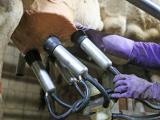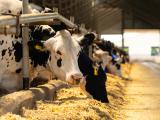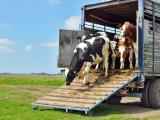Jan 24, 2011
Japan finds H5N1 at more poultry farms
Japan's government has sent 170 military members to help cull poultry at two farms in Miyazaki prefecture where H5N1 avian flu was detected in dead birds, Deutsche Presse-Agentur (DPA) reported today. The prefecture requested help to cull about 410,000 birds and take other response measures. Local agriculture authorities found the virus on Jan 22 in six chickens on one farm and the next day detected H5N1 in five more chickens from a nearby farm. The poultry outbreaks follow recent H5N1 findings in wild birds, and in December 2010 the H5N1 was confirmed at a poultry farm in Shimane prefecture.
Jan 21 DPA story
Elsewhere, Egypt's agriculture ministry announced on Jan 22 that it set up an emergency unit to battle H5N1 outbreaks at poultry farms, Al-Masry Al-Youm newspaper reported. The plan will involve 12,000 veterinarians and their assistants, who will inspect about 16,000 farms to ensure compliance with biosafety standards. Egypt has reported nine human H5N1 cases, including four deaths, since early December. Most had contact with poultry. Egypt's Strengthening Avian Influenza Detection and Response (SAIDR) recently reported 60 outbreaks since the first of the year. About half were detected through active surveillance. Egypt is one of a handful of countries in which H5N1 is endemic in poultry.
Jan 24 SAIDR update
H1N1 outbreak hits South Carolina prison
Officials closed a minimum security prison in Columbia, SC, to visitors for days after a 2009 H1N1 outbreak sickened about 140 of the facility's 730 inmates, according to a Jan 21 AP report. Josh Gelinas, spokesman for the South Carolina Department of Corrections, told the AP that inmates started getting sick on Jan 17. The outbreak affected the largest of Manning Correctional Institution's three units. The prisoners aren't routinely immunized against flu, but they are receiving vaccine now. So far this season there have been few 2009 H1N1 flu outbreaks in the United States. The nation's dominant circulating strains have been influenza A H3N2 and influenza B. However, the 2009 H1N1 virus has been the dominant strain in other Northern Hemisphere locations this season, including Britain and several other European countries.
Jan 21 AP story
Half of Americans doubt vaccine-autism link; third not sure
About half of Americans believe vaccine do not cause autism, while 18% think they do and 30% aren't sure, according to a Harris Interactive/HealthDay poll report in USA Today. The online survey of 2,026 adults was conducted last week, after a series of articles in the British journal BMJ thoroughly debunked the 1998 study that at the time claimed a link between the measles, mumps, and rubella vaccine and autism. The BMJ articles made the case that the 1998 study was an intentional fraud perpetrated by the lead author Andrew Wakefield. Referring to the poll results, Harris Poll chair Humphrey Taylor said, "This sounds like a cup half-empty/cup half-full story," pointing out that the 18% figure translates to "millions and millions and millions of people, and it's clear that in some cases that has led them to not vaccinate their children." In the survey, 69% of respondents said they had heard about the theory that some vaccinations can cause autism, but only 47 % knew that Wakefield's original study had been retracted and that the research is now alleged to be fraudulent. Overall, 69% of adults polled agreed that schools should require vaccinations, and the poll showed that 92% of children have been fully vaccinated. The story did not specify a margin of error for the poll.
Jan 24 USA Today story
Cholera levels declining in Haiti
The number of new cholera cases has peaked in many parts of Haiti, with signs that the number of deaths and hospitalizations from the disease may be leveling off, according to a Jan 21 update from the Pan American Health Organization (PAHO). However, it said cases are in increasing in some rural areas, particularly where health resources are scarce. However, PAHO warned of surveillance gaps in some regions and urged its health partners be vigilant. It said security is a concern in some areas and at times still hampers medical response. The latest report from Haiti's health ministry said 194,095 cases have been reported, including 3,889 deaths. Stefano Zannini, mission chief with Doctors Without Borders, said yesterday that it's unclear if the drop in new cases signals that the epidemic is winding down or if disease activity will surge again, the Associated Press (AP) reported today. "The problem is that the possible development of the epidemic is unpredictable. It is impossible to say whether the situation will continue stabilizing," he told the AP. In other developments, the Dominican Republic reported its first death linked to the cholera outbreak, a 53-year-old Haitian man who was hospitalized in Higuey, in the eastern part of the country, the BBC reported yesterday. The Dominican Republic tightened its border controls to control the spread of the disease. PAHO, in a separate update, said that as of Jan 8 the Dominican Republic had confirmed 212 cholera cases, 191 of which were reported in 2010. It said active cholera transmission was occurring in nine of the Dominican Republic's 31 provinces.
Jan 21 PAHO Haiti cholera bulletin
Jan 23 BBC story
Study profiles non-O157 E coli strains in ground beef
In a study designed to indentify the prevalence of non-O157 Escherichia coli in US ground beef, scientists reviewed 2 years' worth of samples and found 10 strains that may be food safety threats. They published their findings in Applied and Environmental Microbiology. E coli O157:H7 is considered an adulterant in ground beef, but other E coli strains have also been linked to foodborne illnesses. The US Centers for Disease Control and Prevention lists six non-O157 strains that are pathogenic to humans, and the US Department of Agriculture is currently considering whether to also regulate them as adulterants. The researchers tested 4,133 beef samples donated by producers from all regions of the country. Screening found Shiga toxin genes in 1,006 samples (24.3%). Culture isolation identified at least one Shiga toxin E coli (STEC) in 300 (7.3%) samples. The researchers identified 10 strains that may represent a food safety threat, and four (O26, O103, O121, and O145) that were among the six serogroups most frequently linked to human disease. They concluded that screening beef for signs of pathogenic E coli may be a useful approach, but more work is needed to validate the usefulness of such testing.
Jan 21 Appl Environ Microbiol abstract
Pakistan launches emergency polio vaccination
Pakistan launched an emergency drive today to vaccine 32 million children under the age of 5 against polio, which has seen a resurgence in that country, according to a report from the UK's The Guardian newspaper. Last year 144 Pakistan children exhibited polio symptoms, which likely means about 30,000 were infected, according to the story. About half those cases were in the country's remote tribal belt, said to be where al-Qaida leader Osama bin Laden is in hiding. Taliban attacks and US drone strikes in that region increase the difficulty of vaccinating children in that region, an are where health workers have been killed. Officials also fear the poliovirus will spread outside the region. In December after a quiet year two case were confirmed in the capital of Karachi, which likely means that 200 children in the city are carrying the virus. Pakistan is one of only four countries in the world were the virus remains endemic, the story stated. The vaccination campaign is being funded by a $65 million grant from the Bill Gates Foundation.
Jan 23 Guardian story


















